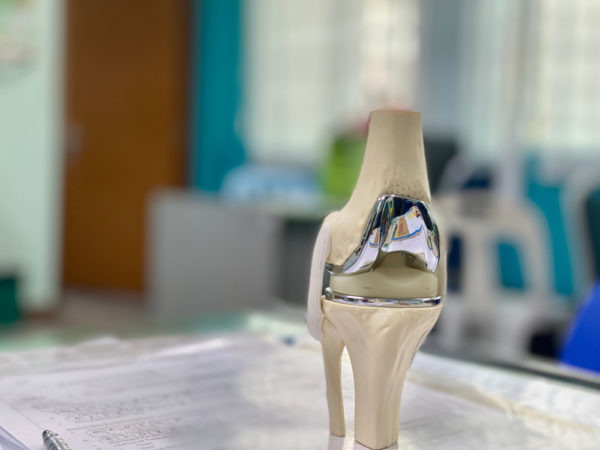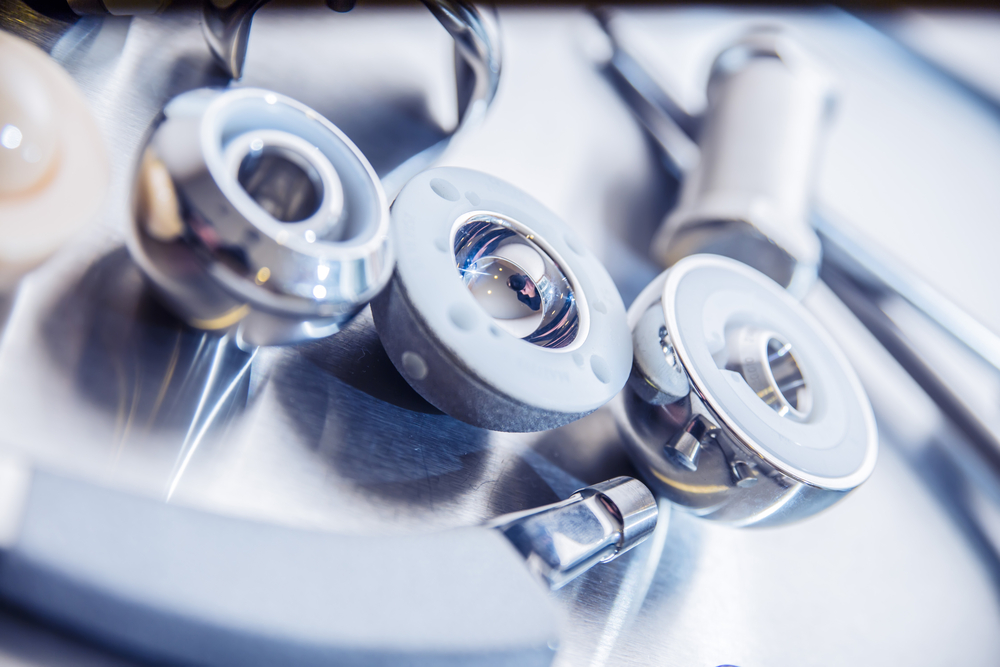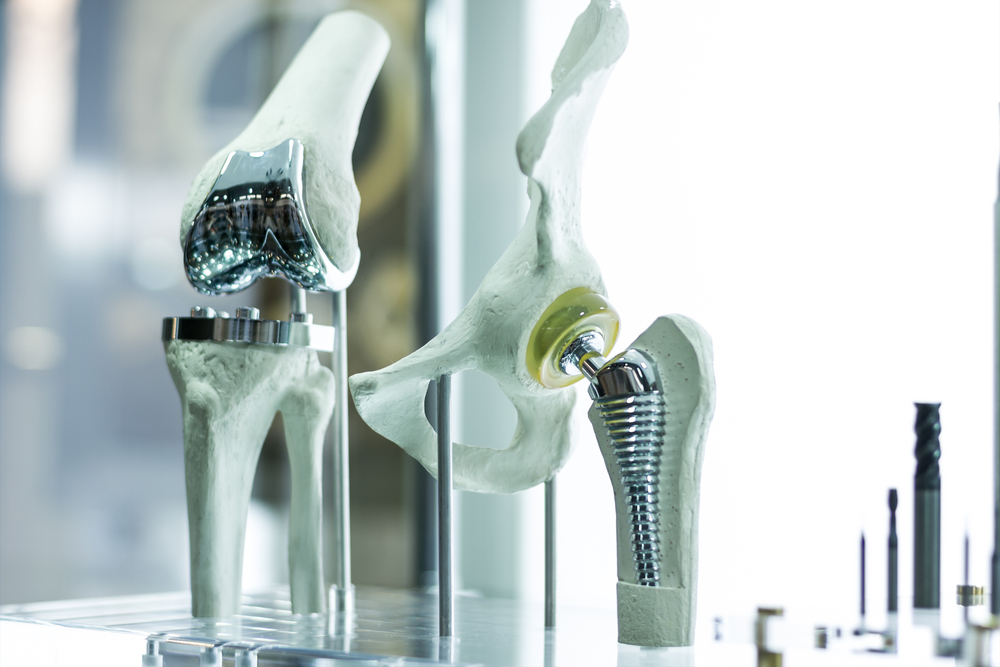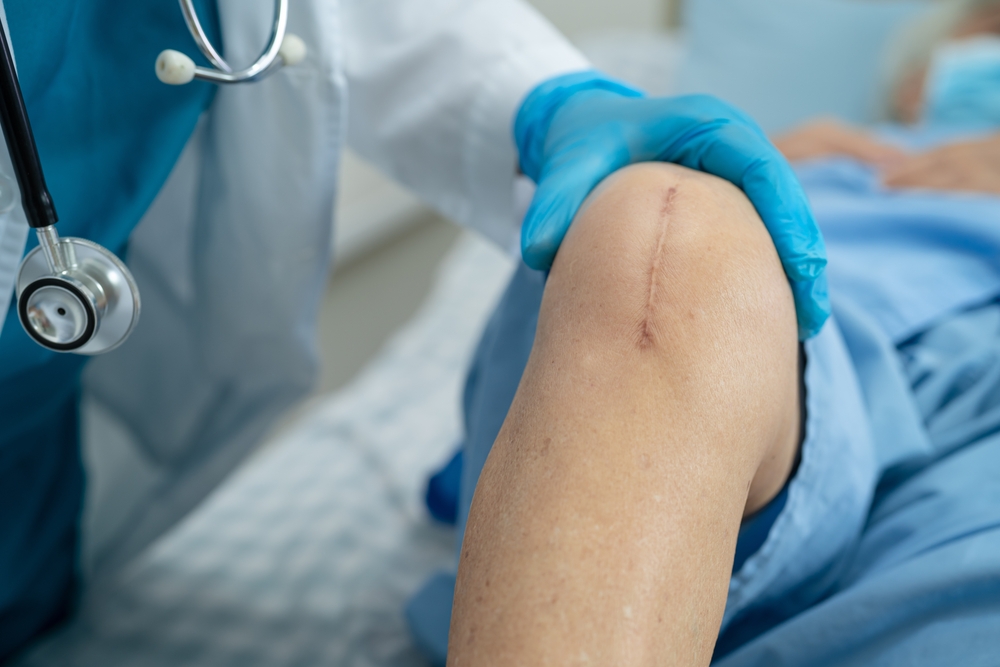Exactech Medical Devices Lawsuits
On August 21, 2021, Exactech issued a recall on its knee and ankle joint replacements. Several months later, Exactech expanded the recall to include all of its knee and ankle implants due to an issue with the polyethylene liners. The packaging of the liners was defective, risking the integrity and efficacy of the product. Ultimately, the defect may cause the liners to wear out early or become damaged after being surgically implanted. The Exactech recall applies to knee and ankle implants manufactured in 2004 or later. Surgeons used these joint replacements 147,732 times, putting many Americans at risk of injuries and health complications.
Table of Contents
- 1 History of Exactech Implant Defect and Lawsuits
- 2 Why Are Lawsuits Being Filed Against Exactech?
- 3 Warning Signs & Injuries from Exactech Joint Replacements
- 4 Exactech Revision Surgery Risks
- 5 How Are Patients Notified of Recalled Exactech Implants?
- 6 Legal Options for Recalled Exactech Joint Replacements
The bone loss (osteolysis) patients have suffered because Exactech’s recalled implants have caused fractures, a reduction in range of motion, and severe pain. Some patients with faulty polyethylene liners may even need revision surgery to replace the implant, but every surgery carries risks.
While Exactech has committed to reimburse out-of-pocket expenses for medical treatment needed due to their recalled joint replacements, there’s no guarantee everyone will get money from them. And they aren’t offering financial compensation for other damages, like lost wages or pain and suffering. As a result, some product liability lawsuits against Exactech have been filed, and many more are expected.
In addition, Exactech recalled its hip replacement liners in 2021. A few patients with the recalled GXL polyethylene liner have also filed lawsuits because of early wear that caused injuries. The company phased out and replaced the liners in 2021, but 90,000 of them had already been implanted.
History of Exactech Implant Defect and Lawsuits
Exactech initially warned doctors of defective vacuum-sealed packaging in June 2021. The company’s investigation into the packaging issue prompted a recall that expanded in 2022. They discovered about 80% of the liners manufactured in 2004 and after were put in “non-conforming bags.” This caused too much oxygen to reach the polyethylene liners in their knee and ankle implants, putting the product at risk of early wear and degradation.
The U.S. Food & Drug Administration (FDA) classified the Exactech recall as a Class II. Typically, this classification involves products that could cause temporary or reversible health complications.
Also, in 2021, Exactech advised doctors they were transitioning to a new XLE polyethylene liner in their hip implants. They ended up recalling the GXL liner – the same one used in the faulty knee and ankle replacements – after discovering they were at risk of deteriorating early. Unfortunately, 90,000 of these hip replacement liners had already been implanted.
In April 2022, a letter was sent to knee and ankle surgeons, hospitals, and health care professionals that used recalled Exactech joint replacement products. It provided a complete list of recalled devices, an update, and recommendations for surgeons. But the discovery of these faulty liners has come too late for many patients.
Why Are Lawsuits Being Filed Against Exactech?
The polyethylene liners in recalled Exactech knee and ankle implants are plastic inserts that act as a replacement of cartilage in the joints. Patients with these implants have suffered injuries and health complications and have filed product liability lawsuits to seek compensation and accountability for the defect and the company’s missteps.
Early device failure can mean revision surgery is needed. The impact of these surgeries, such as time off work, can be extensive. Hip revision surgery is typically avoided, yet those with recalled Exactech knee, hip, and ankle implants may not have a choice.
The first Exactech hip replacement lawsuit was filed in June 2021, prior to the company’s recall. While not all patients with a recalled liner will be injured or require surgery, there are risks to everyone. More claims are expected to be filed as patients who have already had revision surgery and others with a recalled implant learn about the recall and the risks.
Some Exactech lawsuits allege “failure to warn.” They aim to hold the company responsible for not informing patients of the risks and possible health complications. This may be especially true for the recalled hip liners; a 2020 study found there could be an issue with hip implants that had GXL liners, and they warned the company of their findings. However, more than a year passed before Exactech notified doctors of the risk.
On June 14, 2022, a motion to consolidate the knee and ankle recall lawsuits into multidistrict litigation (MDL) in the Eastern District of New York was submitted. It would move pretrial proceedings and the discovery process to one court, which is often done when plaintiffs have a common claim and injuries. If no settlement is reached during the MDL, individual cases will proceed in the states each plaintiff resides.
This is not the first time that Exactech has faced legal troubles. In 2020, they were sued for violations of the False Claims Act. The lawsuit alleged Exactech knowingly provided faulty implants to beneficiaries of Medicaid, Medicare, and Veterans Affairs.
Warning Signs & Injuries from Exactech Joint Replacements
There are a few warning signs that your knee, hip, or ankle replacement is degrading early due to the polyethylene liner: swelling, pain, grinding or clicking noise, difficulty bearing weight, mobility issues, and instability. Because of the Exactech recall and associated risks, those with implants on the recall list should see their surgeon. They can determine if damage has occurred, monitor the defective medical device, and if revision surgery is necessary.
The injuries and health complications caused by recalled Exactech implants include:
- Bone loss (osteolysis)
- Fractures
- Cracks
- Pain
- Dislocation
The GXL polyethylene liner in the Exactech hip liner has caused the release of plastic debris in some patients due to early degradation. This debris can then cause inflammation and prompt a negative biological response in the body, leading to osteolysis.
The dangers of bone loss are real. Signs of osteolysis don’t typically present until after the damage is done; pain and mobility issues caused by bone loss come from damage to tissues around bones, fractures, dislocation, and loosened implants. Therefore, it’s crucial that patients with a recalled Exactech knee, ankle, or hip implant are monitored.
 Surgeons can identify whether an Exactech implant is deteriorating and if bone loss is occurring through x-rays and other medical imaging. This is especially important because many patients won’t display any symptoms of osteolysis, even when the implant is faulty and causing the condition and/or injuries.
Surgeons can identify whether an Exactech implant is deteriorating and if bone loss is occurring through x-rays and other medical imaging. This is especially important because many patients won’t display any symptoms of osteolysis, even when the implant is faulty and causing the condition and/or injuries.
Another way the faulty medical devices can cause pain and suffering and increase health risks is when revision surgery is required. Doctors typically avoid these surgeries, but that’s not always an option. If surgery is needed due to a degraded polyethylene liner in Exactech’s implants, there are clear risks for everyone. Sometimes, those risks are significant, depending on the patient’s health, age, and other factors. For example, if there’s damage around the implant, surgeons may need to take additional steps, lengthening the surgery, which increases the risk of complications.
The fact is close to 150,000 Exactech knee and ankle replacements and 90,000 hip implants are affected by the recall. With these numbers, there’s no doubt some patients need revision surgery.
The potentially defective knee and ankle replacement liners included all Opetrak, Truliant, and Vantage brands.
Exactech Revision Surgery Risks
In some cases, revision surgery may be unavoidable for patients with recalled Exactech hip, knee or ankle implant devices. Unfortunately, as with any surgery, there can be risks and complications associated with Exactech implant revision surgeries.
Surgical health risks could include infections, blood clots, blood loss, nerve damage, bone fractures, stroke, heart attack, and lung complications. Revision joint surgeries are also usually more complicated depending on what the surgeon has to do. In addition to replacing the defective Exactech implant, the revision joint surgery may require multiple surgeries to fix additional damage to the bone and surrounding areas.
Along with health risks, there can be high costs associated with a revision surgery due to a recalled Exactech implant. The surgery itself will be expensive, but there could be other financial factors such as hospital stays, medications, medical imaging, rehabilitation and follow-up doctor appointments. It often takes more time to recover from revision surgery. For example, a revision hip surgery could take 12-18 months versus 6-12 months for initial implant surgery. In turn, this affects the patient’s ability to work, take care of children and a home, and enjoy daily activities. All of which can create a financial burden on the patient.
Many patients with recalled Exactech implants have no choice but to undergo another surgery, which adds to the surgery and recovery time, increasing health risks and costs.
How Are Patients Notified of Recalled Exactech Implants?
Initially, it seemed that Exactech had a solid plan for notifying patients of recalled implants. In February 2022, they promised to inform patients, but far too many are still unaware of the recall; they issued letters, but awareness of the recall is mediocre. Many are unaware of the risk to their health – and that they should contact their doctor. One reason is that if the patient moves to a new address after their joint replacement surgery, they’re unlikely to receive the letter.
Some doctors have followed up with their patients with Exactech knee, hip, and ankle joint replacements for early degradation. But without Exactech putting more effort into notifying those affected by the recall, patients continue to be at risk of injuries.
Also, some patients have already had revision surgery but don’t know that the polyethylene liner’s early degradation could have been why they needed a new implant. Patients and insurance companies have paid out-of-pocket, not knowing Exactech may be responsible and have promised to cover certain expenses. There’s also little information for patients in this situation, specifically, how they can be reimbursed for medical costs years after revision surgery.
Exactech has also been criticized for placing much of the responsibility on doctors to notify patients and determine a solution. It’s unfair and difficult for doctors to be tasked with spreading the word about the recall of knee, hip, and ankle implants when so many have been implanted.
Steps to Determine If Your Implant Is Part of the Exactech Recall
If you have an ankle, knee or hip implant but haven’t received a notification about the Exactech recall, you will still want to confirm if you have a recalled Exactech medical device. Companies are supposed to notify consumers about medical implant device recalls, but patients might miss those advisories for various reasons.
Even if you know you have an Exactech implant and haven’t had any complications, it’s still important to know whether you could, at some point, develop health problems and be affected by the recall. Here are a few steps to take to determine if your implant has been recalled:
- Contact Exactech – If you have the details about your ankle, knee or hip implant, including the implant’s serial number, you can visit Exactech’s website to see the complete list of all the implants included in the recall. The company also has a telephone hotline for patients with questions about the recall.
- Contact Your Orthopedic Surgeon – The doctor who performed your ankle, knee or hip surgery will have records of your implanted medical device, including the implant’s manufacturer, lot number, and serial number. If the surgeon notifies you that you have a recalled Exactech device, they will inform you about the warning signs that may indicate joint implant failure. Or, if you are experiencing any complications, they can determine the best treatment plan for dealing with the recalled device.
- Visit the FDA Website – The Food and Drug Administration (FDA) is responsible for protecting public health by ensuring the safety, efficacy, and security of things like medical devices. In most cases, when there is an issue with a medical device, the medical device company or manufacturer will issue a voluntary recall and notifies the FDA. The FDA monitors defective products and can force a recall if a company doesn’t voluntarily give one. The administration has a Medical Device Recalls Database that includes detailed information about Exactech products, including serial numbers and the reasons given by the company for each recall. The government acts as an unbiased third-party source for consumers who want information about product recalls.
Legal Options for Recalled Exactech Joint Replacements
Contacting your doctor is the first step to finding out if your Exactech knee, ankle, or hip implant is part of the Exactech recall. You’ll need to look up the serial number (obtained in your medical records) on the Exactech recall website.
The next step is to contact a product liability lawyer to discuss your legal options. Do not fill out a claim through Exactech before contacting a lawyer. Exactech may reimburse you for medical costs caused by their defective liners, but they don’t cover any of the other important damages you may have already suffered (or will in the future).
Instead, personal injury lawsuits for recalled knee, hip, or ankle joint replacements by Exactech can cover much more; they may not only seek compensation for medical costs but also lost wages, decreased quality of life, pain and suffering, and more.
In addition, a claim of this kind may hold a company accountable for its failures to consumers, especially if they didn’t make a significant effort to inform patients of the recall and risks or knowingly kept the defect quiet. Simply put, an experienced product liability lawyer can help ensure you get the compensation you deserve if you have a recalled Exactech implant.














